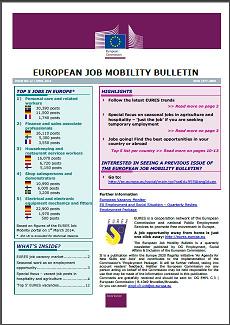Ladi, S. & Tsarouhas, D. (2014) “The Politics of Austerity and Public Policy Reform in the EU, Political Studies Review, 12: 171–180. The European Union (EU) is at a critical juncture that will either trigger further integration or reinforce a mode of intergovernmental cooperation. The spread of market pressure to a growing number of states demonstrates that the crisis needs to be dealt with at the European and not just …Read More
National Accounts at a Glance 2014
OECD (2014) “National Accounts at a Glance 2014“, Organization for Economic Cooperation and Development, 29 Απριλίου. This publication presents information using an “indicator” approach, focusing on cross-country comparisons; the aim being to make the accounts more accessible and informative, whilst, at the same time, taking the opportunity to present the conceptual underpinning of, and comparability issues inherent in, each of the indicators presented. The range of indicators is set …Read More
EBA 2013 Annual Report
European Banking Authority (EBA) 2013 Annual Report, 21 Μαΐου 2014. This edition of the EBA Annual Report takes stock of the first three years of activity of the Authority which contributed to the repair of the EU banking system by promoting the cleaning of EU banks’ balance sheets and strengthening their capital position. The EBA also brought forward its work on the development of a truly uniform set of …Read More
Facing up to uncertainty in official economic statistics
Manski, C. F. (2014) “Facing up to uncertainty in official economic statistics“, VoxEU Organisation, 21 Μαΐου. Many economic statistics move markets when first released, and move them again when they are revised. This column suggests ways of measuring the transitory statistical uncertainty in estimates of official statistics based on incomplete data and the permanent statistical uncertainty stemming from survey non-response. Government agencies would be doing the public and policymakers …Read More
For economies, age is not just a number
Onder, H. & Pestieau, P. (2014) “For economies, age is not just a number“, VoxEU Organisation, 20 Μαΐου. The world’s population is ageing, due to both increasing longevity and decreasing fertility. This column shows that the net effect of ageing on capital accumulation (and therefore growth) depends on which of these two factors dominates, and also on the structure of the pension system. Under a pension system with defined …Read More
Sources and legitimacy of financial liberalization
Burgoon, Β., Demetriades, P. & Underhill, G. R.D. (2012) “Sources and legitimacy of financial liberalization“, European Journal of Political Economy, Vol. 28, Issue 2, June 2012, pp. 147-161. This article seeks to clarify how we understand domestic and international sources of globalization and specifically how we explain financial liberalization across countries. The article also develops our understanding of the underlying legitimacy of financial liberalization. We debate e.g. Abiad and …Read More
How should the ECB enact Quantitative Easing? A proposal
Varoufakis, Y. (2014) “How should the ECB enact Quantitative Easing? A proposal“, Thoughts for the post-2008 World Blog, 19 Μαΐου. The ECB has no alternative to enacting some form of Quantitative Easing (QE) in order to prevent deflationary expectations from setting in fully. Core inflation has already reached a level that, even according to Mr Draghi’s own pronouncements on 24th April, should have already triggered off QE. However, the ECB’s governing …Read More
ECB: An appropriate monetary policy
Levy, M. (2014) “ECB: An appropriate monetary policy“, VoxEU Organisation, 16 Μαΐου. As banks repay their loans from the Long-Term Refinancing Operation, the ECB’s balance sheet is shrinking. This column argues that, given the slow recovery and sustained low inflation, the ECB should replace its bank lending programme with quantitative easing. Buying short-term government debt would be consistent with the ECB’s inflation target, would keep the ECB’s monetary policy …Read More
European Job Mobility Bulletin
European Commission (2014) European Job Mobility Bulletin, Issue No. 12 , 30 Απριλίου. According to this issue of the European Job Mobility Bulletin, based on the vacancies published on the EURES portal, the top 5 jobs in Europe are: Personal care and related workers, Finance and sales associate professionals, Housekeeping and restaurant services workers, Shop salespersons and demonstrators, and Electrical and electronic equipment mechanics and fitters. This Bulletin is available in …Read More
How the euro changed the pattern of international debt flows
Hale, G. & Obstfeld, M. (2014) “How the euro changed the pattern of international debt flows“, VoxEU Organisation, 15 Μαΐου. Large flows of bank lending from core countries in the Eurozone to the periphery lead to large financial imbalances. This column explains what motivated such financial flows. With the advent of the Eurozone, banks in core countries gained relative advantage in lending to the periphery, making such lending very …Read More





